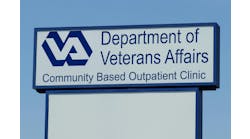To strengthen health services research, Switzerland is taking a “learning health system” approach to continuously integrating sound scientific evidence into the health system.
The Swiss Learning Health System (SLHS) serves as a bridging mechanism between research, policy, and practice, explained Stefan Boes, Ph.D., the vice principal of the Department of Health Sciences and Medicine and professor of health economics at the University of Lucerne. The SLHS also monitors and evaluates implementation of measures to enhance the quality of health systems, added Boes, who was speaking recently in a presentation to the University of Michigan’s Department of Learning Health Sciences. UM’s Learning Health Systems Collaboratory serves as a hub for advancing interdisciplinary research and development of learning health systems at the University of Michigan.
In 2012, the Swiss federal Office of Public Health issued a report that emphasized the need for strengthening health services research. The report also emphasized that there was no structured network among different stakeholders, not only in research, but basically across the entire health system and that there were no targeted funding mechanisms to support health services research in the country. That helped set the stage for the creation of the SLHS.
Established in 2017 with funding from the Swiss government, the SLHS involves 13 university institutes and departments. Boes said the initial work was based on discussions in the United States about defining a learning health system that was initiated by the Institute of Medicine. “We thought about how this could be implemented in the Swiss context,” he said. “Our objective is to strengthen the health system and create a culture of shared decision making, in which sound scientific evidence is continuously integrated in the health system. So we really want to bring forth the idea of learning cycles, where sound scientific evidence is integrated into the health system at places where it's needed.”
After four years of development, the project has just received funding for a second phase. Sarah Mountville, Ph.D., the research manager and coordinator of the Swiss Learning Health System project, said they try to continuously scan the Swiss health system landscape to find new and emergent issues. “We prioritize these issues and develop evidence and policy briefs that provide a number of recommendations for courses of action,” she said. “We also use them as a basis for stakeholder dialog. We try to monitor what sort of changes occur after the dialog — whether for example, some initiatives for implementation have started. And then we try to learn from that experience: Did things change? What changed? What are still gaps that we might have to address and feed it back into our learning system?”
Mountville explained that every partner institution has two Ph.D. students who work in one way or another on the development of policy briefs and the conduct of stakeholder dialogs.
“We have around 20 to 24 Ph.D. students continuously in our project,” she said. “In the second funding phase, we want to develop standards for the management of health information. The policy briefs that we are writing are based on studies and research that is conducted elsewhere, often from the United States and Canada.” They look for data sources they can use to replicate findings elsewhere. One idea is to make health data sets more easily accessible. “Along with one of our partners in the French-speaking part of Switzerland, we have developed the first pilot application of a metadata repository, where people can have access to health data sets or health-related data sets through different mechanisms,” she said.
Mountville noted that during the first four-year funding phase, the identification of issues was still quite academically driven, “but through the course of the four years, I think we were able to identify more and more issues that are truly relevant to practice and policy because we were conducting more and more stakeholder dialogs and our network was growing. Also, for the second funding phase we really want to give stakeholders a seat at the table so they are not just a sounding board for us, so that what we do is truly relevant, but also to get their ideas on what they think we could address with our mechanisms.”
An example of a policy brief involved patient-reported experience measures for cancer patients. “There has been a bit of an academic push to include more patient-reported experienced measures in cancer care, and in particular, to think about how to collect this data in a more systematic way,” Mountville said. “But there also has been an increasing interest from the patients to actually share their experience in that regard. So we developed a policy brief that looked into what has been done in other countries. How can we actually implement it? What other initiatives are going on? It's been done in other countries in Europe — what could be transferable to the Swiss context and what are potential facilitators and barriers?
Among the lessons learned in the first funding phase, Boes said, are that like in the U.S., the Swiss health system is highly complex and dynamic, which makes creating awareness, interest and advocacy for a novel initiative such as the SLHS time-consuming. He said that efforts are needed not only to further develop the network but also to make collaborations of mutual benefit to all partners in order to avoid stakeholder fatigue.
Finally, he said, the project’s mechanisms need to be further developed to make sure that the SLHS offers a set of tools that can effectively and efficiently support decision-making, on all levels and across functions of the health system.
Looking ahead, the goal is the expand and strengthen the SLHS network. For the second funding phase, four new academic partner institutions have joined. They are creating topic-specific working groups to foster collaboration within the network and continuously develop the SLHS. “What we noticed quite early on is that whether this mechanism works or not is highly context-dependent,” Boes said. “There is no sort of uniform model that works for everything. We are trying to make this model a bit more flexible, to be adaptive to different situations, different contexts, different kinds of stakeholders.”


